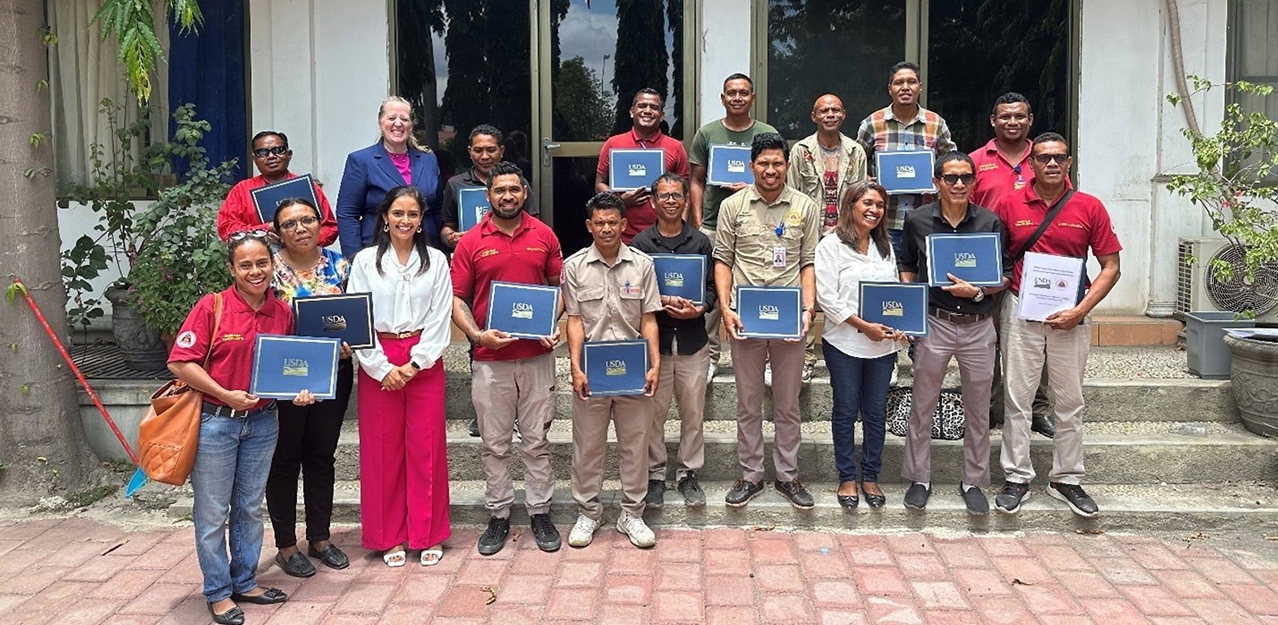APHIS In Action: Enhancing the Capacity of Underserved Communities

Earlier this year the Animal and Plant Health Inspection Service’s Bangkok Office collaborated with APHIS, International Services, International Technical and Regulatory Capacity Building (ITRCB) and Plant Protection and Quarantine (PPQ) Programs to host a virtual two-day Plant Health Capacity Building Training with Timor-Leste’s National Department of Quarantine and Biosecurity (NDQB).
In 2023, Timor-Leste requested training from APHIS’ Bangkok Office to improve its ability to identify plant pests. APHIS developed a training covering the Safeguarding Continuum, Market Access Request Process, Pest Risk Analysis, and Pest Risk Mitigation. Experts from PPQ delivered presentations virtually to 20 participants from NDQB’s plant, animal, and aquatic quarantine divisions. APHIS International Service Bangkok area director, Meera Chandra traveled to Timor-Leste to facilitate the workshop. USAID also participated.
This training aligns with APHIS’ goal to promote capacity building and strengthen agriculture in underserved countries. Plus, enhancing the capacity of Timor-Leste opens an alternative market for US products in alignment with the U.S. government’s Indo-Pacific Strategy.
Timor-Leste is an island nation in Southeast Asia. It is one of the youngest countries in the world and has a growing population of just over 1.3 million. Since its independence from Indonesia in 2002, Timor-Leste has made great strides to regulate the import and export of agricultural products and is working to join international organizations like the World Trade Organization (WTO) and Association of Southeast Island Nations (ASEAN), both of which have rigorous Sanitary and Phytosanitary standards.
About 93% of participants agreed/strongly agreed that all four sessions increased their knowledge, skills, and abilities and better prepared them to meet international standards.
“Working with Timor-Leste is an example of how to do capacity building at a low cost and is a good example of working creatively with an underserved country,” said Marc Gilkey, South Asia-Pacific Regional Manager.
#
USDA is an equal opportunity provider, employer, and lender.

